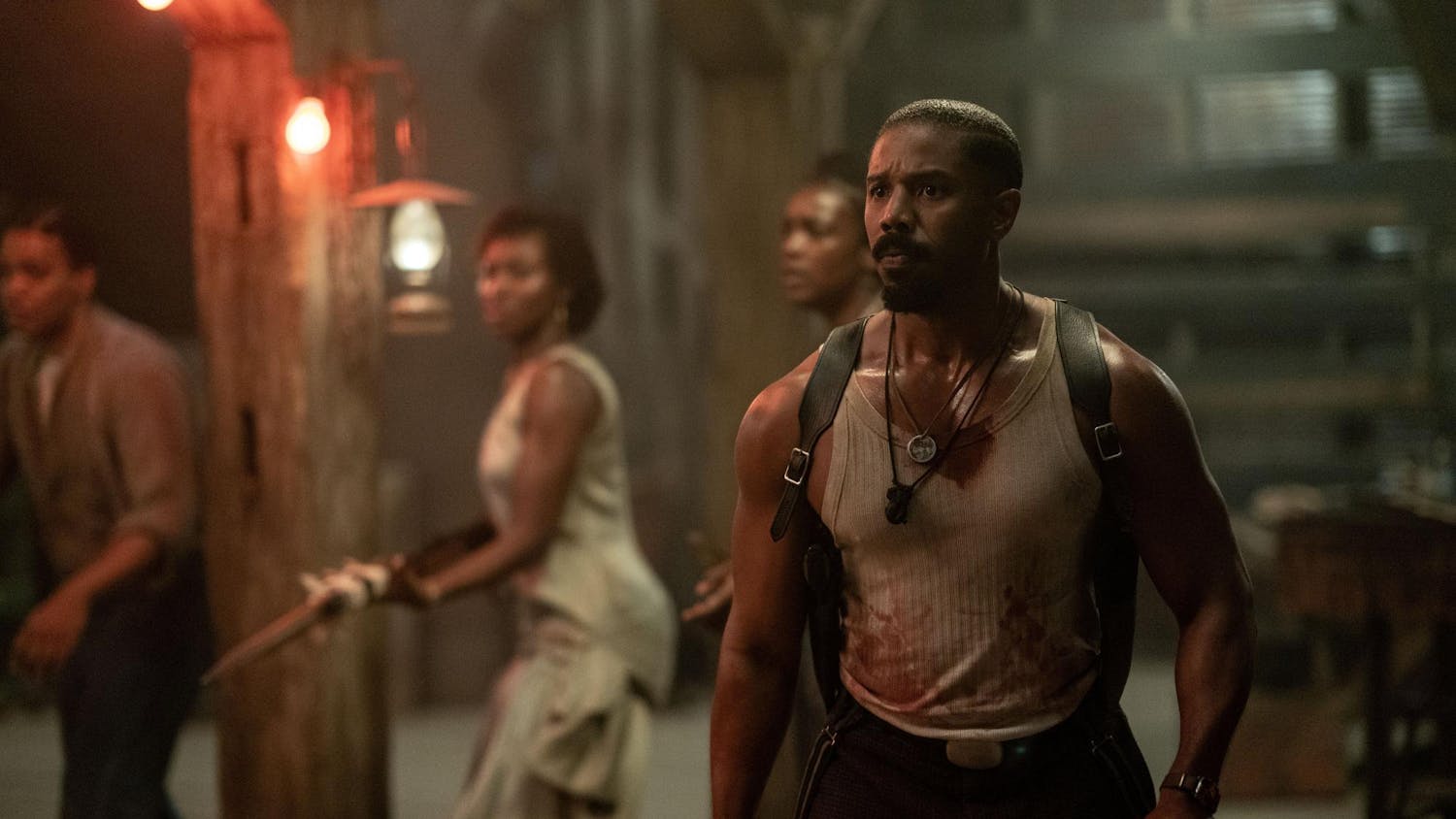As a key feature of his “2020 Next Level Agenda,” Gov. Eric Holcomb announced a goal to triple defense spending in Indiana by 2025. As of last month — now facing both health and economic crises — he said his sights “stay focused” on tripling the already $5.4 billion Hoosier military-industrial complex.
President Michael McRobbie, Board of Trustees member Melanie Walker and the university’s research facilities actively participate in growing the defense industry’s Indiana footprint. Their involvement, along with an assortment of government, corporate and philanthropic partners, corrupts the integrity of our university.
IU must end its participation in the military-industrial complex to prevent further corrosion of the university’s values. To continue in its research role is an injustice to its students and a rejection of IU’s humane duty to the international community as a source of higher education.
Private-public weapons manufacturing and research is an inherently corrupting force. In former President Dwight Eisenhower’s 1961 farewell address, he warned the American people of a rapidly growing military-industrial complex.
“The total influence — economic, political, even spiritual — is felt in every city, every state house, every office of the Federal government,” Eisenhower said. “We must not fail to comprehend its grave implications.”
It’s clear the nation failed to comprehend 60 years later. With Indiana’s economic, political and even spiritual forces under the influence of defense manufacturing, we should all fear the implications both at home and abroad.
The university’s cooperation with the defense industry is most brazen in its work with the Indiana Innovation Institute. IN3 is a network spanning academia, industry and government to collaborate on what the group says are critical defense priorities. It engages in research including hypersonics, cybersecurity and microelectronics.
The partnerships across state government, the Department of Defense, a wide-range of industries — from Indiana pharmaceutical companies to multinational defense contractors — and IU indicate a form of corruption endemic to the military-industrial complex. The research IU conducts on behalf of such actors, while economically justifiable, implicates the university in a war economy reliant on conflict for profit.
“It's a really important effort because the Defense Department spends a lot of money on research, a lot of money on buying things, a lot of money on product development, and trying to get some of that money to be spent here in the state is good for the state,” said IU Vice President for Research Fred Cate, a member of IN3’s strategic advisory group.
IN3 launched in 2017 and was initially funded through a $16.2 million grant from Lilly Endowment Inc. The philanthropic arm of pharmaceutical company Eli Lilly states its goals as furthering “community development, education and religion.” IN3 uses defense and other technologies as a means to secure economic development in the state, according to its website.
McRobbie holds a position at IN3 through the Board of Directors’ Executive Committee. IU Trustee Melanie Walker serves on its Board of Directors in her role as president and CEO of the plastics manufacturing company Tsuchiya Group North America of the TASUS Corporation. Walker has leadership positions in IU, an IN3 academic partner, and the TASUS Corporation, an IN3 industry partner.
McRobbie’s office and the Board of Trustees did not respond to requests for comment.
Also on the board are people such as Holcomb, Purdue University President Mitch Daniels and the president of defense programs at Rolls-Royce, the top defense contractor in Indiana.
Two additional IU administrators are members of IN3’s strategic advisory group. It also includes a representative from the Department of Defense’s Naval Surface Warfare Center Crane Division and management from Raytheon Technologies, one of the world’s largest defense contractors with revenue totaling more than $80 billion in 2019.
“Our industry partners, which are made up of companies both large and small, often have cutting-edge solutions to issues that are important to solving critical defense priorities,” IN3 Executive Vice President for Strategy, Partnerships and Outreach Julie Griffith said in an email.
IU is involved in hypersonics, microelectronics and cybersecurity in collaboration with Purdue and the University of Notre Dame as part of its partnership with IN3.
Hypersonics are objects that can travel at five times the speed of sound, IU Intelligent Systems Engineering Department Chair Martin Swany said. The technology is used in aircraft as well as missile delivery systems.
Cate said IU does not actually test hypersonic vehicles. It takes data from Notre Dame’s wind tunnel to model and process the results in IU’s supercomputers.
“It's a perfect example of a partnership, each of us bringing tools that we have, in our case supercomputing, in order to perform on the DOD contract,” he said.
The Defense Department is aggressively pursuing hypersonic weapons technology to counteract China and Russia’s militaries, according to a July 2020 press release. It details the key role played by academia and industry partners, such as Raytheon or Rolls-Royce, in delivering these weapons to the United States military.
“Much of the current focus is on offensive hypersonic weapons systems,” the release said.
IU’s rendition of the technology tends to focus on its potential use in aircraft. But it’s difficult to deny the Defense Department and private contractors view hypersonics through the lens of offensive capability.
While university researchers are for the most part well-intentioned in their pursuit of technological advancement, IU’s relationship with the military and its private counterparts wholly corrupt this process. The governor’s goal to triple defense spending in Indiana — a target IN3 is explicitly helping advance — is equally nefarious.
Both Raytheon and Rolls-Royce have been found guilty of foreign corruption, bribery schemes and environmental violations. A 2016 investigation by the Guardian and BBC found Rolls-Royce bribed officials in countries aligned with the U.S., such as Brazil and Saudi Arabia, as well as U.S. adversaries, such as Iran and China. Each contractor conducts business with Saudi Arabia, which then uses their products to wage a horribly inhumane war in Yemen.
The technologies IU and IN3 are helping to develop will most certainly join the array of weapons the U.S. military, Raytheon and Rolls-Royce deploy.
Eisenhower’s 1961 warning also foretold of this dangerous relationship between the Defense Department, private industry and academia.
“The free university, historically the fountainhead of free ideas and scientific discovery, has experienced a revolution in the conduct of research,” he said. “The prospect of domination of the nation's scholars by Federal employment, project allocations and the power of money is ever present and is gravely to be regarded.”
Our university is in the process of domination by federal and private forces, sacrificing its own freedom under the influence of powerful interests. The relationship IU holds with the military-industrial complex undermines the university’s moral legitimacy in a profound betrayal to the global community. It must end.
Kishan Dhulashia contributed research to this column.
Kyle Linder (he/him) is a senior studying journalism and international relations. He wants everyone to join a union.




